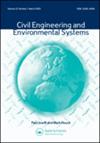系统思考避免了现在和未来的末日:为什么我们应该总是看到生活的光明面
IF 1.1
3区 工程技术
Q3 ENGINEERING, CIVIL
引用次数: 2
摘要
土木和环境工程界的系统思考和分析在减轻自然和人为灾害的影响方面取得了巨大成功。毫不奇怪,联合国人类发展指数显示,自1990年实施以来,每个国家都在稳步改善。世界从来没有像现在这样健康、富裕、受教育程度更高。气候变化和可持续发展仍然是面临的重大挑战。然而,气候变化造成的经济和生命安全损失往往被夸大,没有反映财富创造、人力资本和新技术的改进。迫切需要以系统为主导的办法,过去取得的骄人成就同样也应转化为未来的成就。本文将讨论这些问题,以及简要描述系统工程在处理新的和正在出现的威胁中的重要性,以及政治必要性。本文还将强调,未来有很多值得乐观的地方,系统思考的能力也有很多值得乐观的地方,可以应对任何挑战。引用巨蟒剧团的话,我们应该试着“总是看到生活的光明面”。本文章由计算机程序翻译,如有差异,请以英文原文为准。
Systems thinking averts apocalypses now and in the future: why we should always look on the bright side of life
ABSTRACT Systems thinking and analysis from the civil and environmental engineering communities have been highly successful in mitigating the effects of natural and man-made hazards. Not surprisingly, the United Nations Human Development Index shows steady improvement for every nation since its implementation in 1990. The world has never been healthier, wealthier, or more educated than at the present. Climate change and sustainability remain as significant challenges to be faced. It will be shown, though, that economic and life-safety losses from climate change are often exaggerated and do not reflect wealth creation, human capital, and new improved technologies. There is an urgent need for systems-led approaches and there is a proud record of accomplishments in the past that should equally as well translate into the future. This paper will discuss these issues, as well as briefly describe the importance of systems engineering in dealing with new and emerging threats, as well as the political imperative. The paper will also highlight that there is much to be optimistic about the future, and in the ability of systems thinking to meet any challenges. And to quote Monty Python we should try to ‘Always Look on the Bright Side of Life’.
求助全文
通过发布文献求助,成功后即可免费获取论文全文。
去求助
来源期刊

Civil Engineering and Environmental Systems
工程技术-工程:土木
CiteScore
3.30
自引率
16.70%
发文量
10
审稿时长
>12 weeks
期刊介绍:
Civil Engineering and Environmental Systems is devoted to the advancement of systems thinking and systems techniques throughout systems engineering, environmental engineering decision-making, and engineering management. We do this by publishing the practical applications and developments of "hard" and "soft" systems techniques and thinking.
Submissions that allow for better analysis of civil engineering and environmental systems might look at:
-Civil Engineering optimization
-Risk assessment in engineering
-Civil engineering decision analysis
-System identification in engineering
-Civil engineering numerical simulation
-Uncertainty modelling in engineering
-Qualitative modelling of complex engineering systems
 求助内容:
求助内容: 应助结果提醒方式:
应助结果提醒方式:


